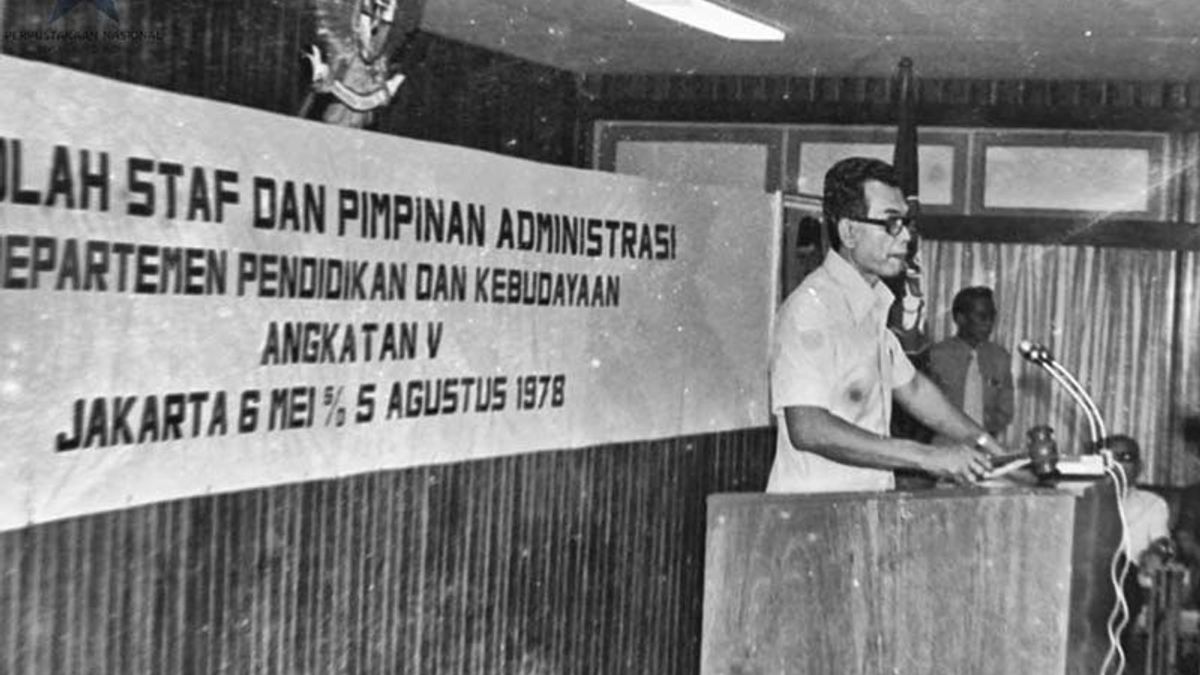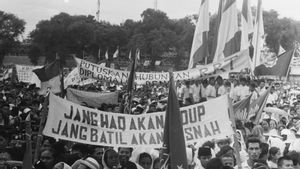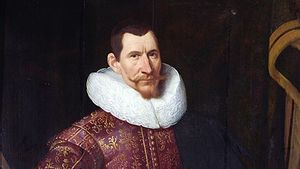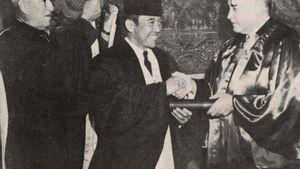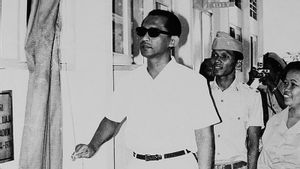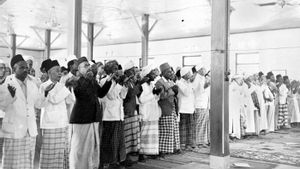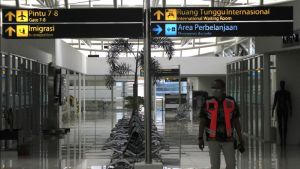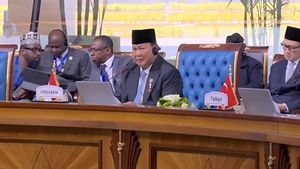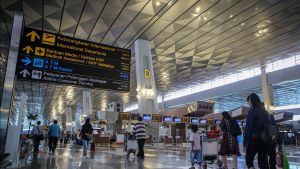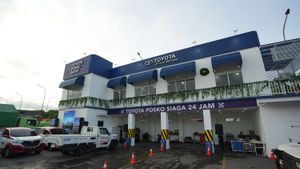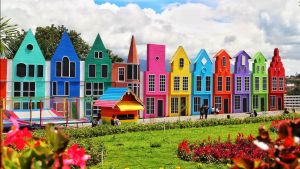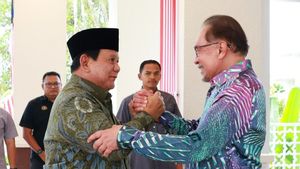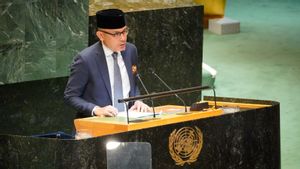JAKARTA – Today's history, 44 years ago, on April 19, 1978, the Minister of Education and Culture, Daoed Joesoef issued a decree related to the Normalization of Campus Life/Student Coordinating Board (NKK/BKK). The policy was carried out so that Indonesian students were more active in the learning process, not even active in politics.
The NKK/BKK were present because recently students were actively criticizing the New Order regime. Whoever rejects the NKK/BKK will be weakened from the campus stage.
There is no denying that the downfall of the Soekarno government began with student demonstrations. All of the class students were fed up with the Bung Karno government in 1966. They considered Bung Karno's policies far from prospering the people. Moreover, Bung Karno's refusal to take firm action against the Indonesian Communist Party further worsened the situation.

The students were furious. They chose to take to the streets to voice the suffering of the people. The student demands were then narrowed down into the Three People's Demands (Tritura). First, dissolve the Indonesian Communist Party (PKI), reshuffle the cabinet, and lower prices.
The action is quite long. All Indonesian people sympathize with students. Including some law enforcement officers. This support is none other because law enforcement officers feel that government policies are also worsening their personal life conditions.
The government also took a stand. They try to listen to the will of the people. But what power. The prices that have soared cannot be contained by the government. Tritura's demonstrations are increasingly unstoppable. Those who support it are increasing. Tritura also became the gate of Bung Karno's fall in the future.
“A fatal mistake in Bung Karno's leadership was the lack of attention to the welfare of the people, especially their daily needs. I remember Bung Karno once said that the people's needs are not only bread, but spiritual needs. It is true. But he forgot, without enough food, people will feel dissatisfied. Stomach affairs are a primary human need, there has always been a saying: the stomach cannot wait.”
“Besides, he tends to be authoritarian in using his power. Unfortunately, the other leaders around him just became yes man. Only a few dared to disagree with him, such as Bung Hatta, Sutan Sjahrir, Moh. Roem, Moh. Natsir, and Subandio Satrosatomo. However, they instead had to get rid of them or be removed,” recalls Firman Lubis in the book Jakarta 1950-1970 (2018).
The Fruit of Criticism of the New Order
The power of the Old Order was then replaced by the New Order (Orba) under the leadership of President Suharto. He really understands the power of students. All of that because Suharto witnessed for himself how the power of students could overthrow Bung Karno. Moreover, Suharto was known to be friendly with students.
Later, students began to criticize New Order. The government is considered unable to provide welfare to the people. Instead of helping the people, the government is busy wasting money on the lighthouse project. The development of the Taman Mini Indonesia Indah is one of them.

The voices of student criticism grew stronger. Suharto immediately realized this. He did not want to suffer the same fate as his predecessor, Bung Karno. The strength of the students began to be dismantled slowly. The NKK/BKK was also rolled out as the main study. Suharto issued the policy through the Minister of Education and Culture, Daoed Joesoef in 1978.
“In addition to silencing newspapers, in 1969 the New Order Government activated BKSPMI (Indonesian Student Press Cooperation Agency) to compete with IPMI (Indonesian Student Press Association). Like a lamp running out of oil, IPMI gradually receded and went out by 1982."
“Furthermore, the 1978 Campus Life Normalization/Student Coordinating Board (NKK/BKK) program further limited the space for campus press to move. Mr. Chancellor Satari was secretly against this program entering the IPB campus until he was stopped by Daoed Joesoef, the Minister of Education and Culture," said Yan Lubis in the book Baranangsiang (2019), about the NKK/BKK which is a today's history record, April 19, 1978.
SEE ALSO:
The English, Chinese, Japanese, Arabic, and French versions are automatically generated by the AI. So there may still be inaccuracies in translating, please always see Indonesian as our main language. (system supported by DigitalSiber.id)
